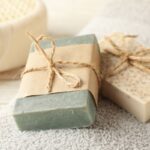
A&E
Here are Some tips To Get The Kids To Eat Dinner Easily
Picky eating is a common challenge faced by many parents. It involves a narrower than normal range of foods that …

Braves’ Ozzie Albies Sidelined by Fractured Toe, Yuli Gurriel Steps in as Replacement
Joe Parker
The Atlanta Braves have placed second baseman Ozzie Albies on the 10-day injured list due …

Travis Kelce Takes the Game Show World by Storm with “Are You Smarter than a Celebrity?”
Joe Parker
From Gridiron to Game Shows: Kelce’s New Gig Eight-time Pro Bowler and sports podcast co-host …





